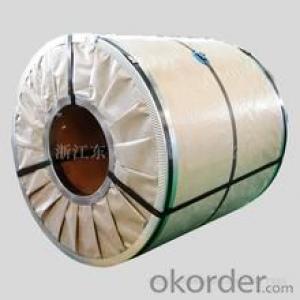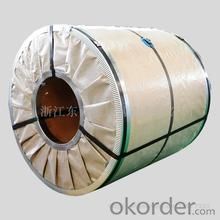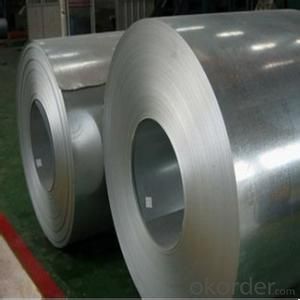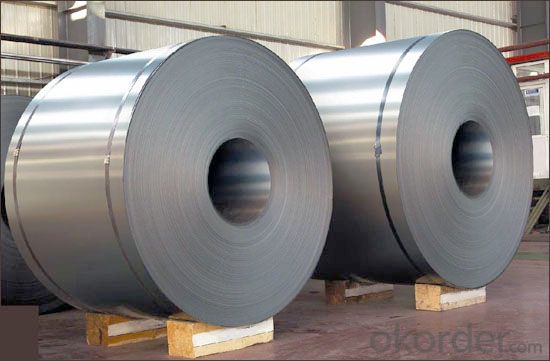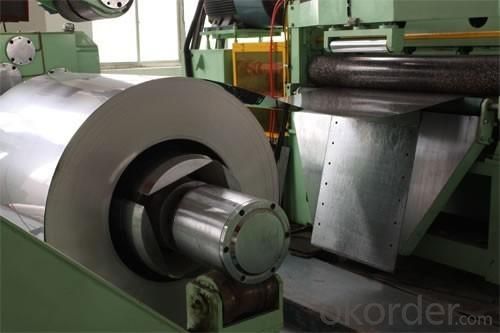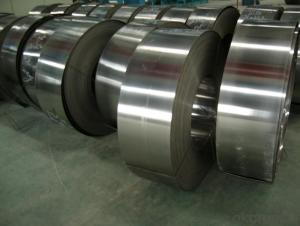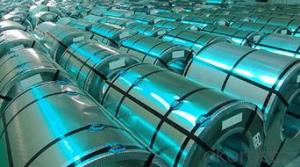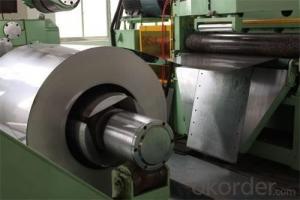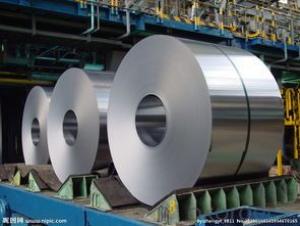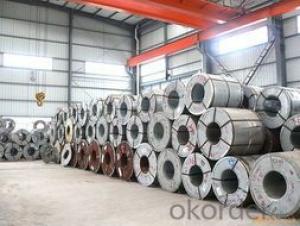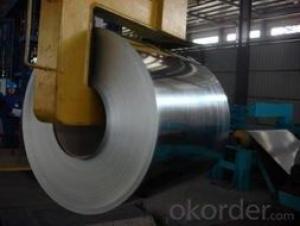Chinese Best Cold Rolled Steel JIS G 3302 in Low Price
- Loading Port:
- China main port
- Payment Terms:
- TT OR LC
- Min Order Qty:
- 50 m.t.
- Supply Capability:
- 10000 m.t./month
OKorder Service Pledge
OKorder Financial Service
You Might Also Like
Chinese Best Cold Rolled Steel JIS G 3302 in Low Price
1.Structure of Cold Rolled Steel Description:
The raw material of cold rolled steel coil/sheet is high quality hot rolled product, and after pickling continuous rolling, degreasing, annealing,skin pass,slitting and cut to length line etc. Along with it many kinds of new technology and new process of global cold rolling production have been applied. Therefore the quality of the goods could be guaranteed. The product is widely used in outdoor and interior decoration, furnishing manufacturing, home appliance, automobile etc.
2.Main Features of the Cold Rolled Steel:
• Excellent process capability
• Smooth and flat surface
• Workability, durability
• Excellent heat resistance performance
• High strength
• Good formability
• Good visual effect
3.Cold Rolled Steel Images
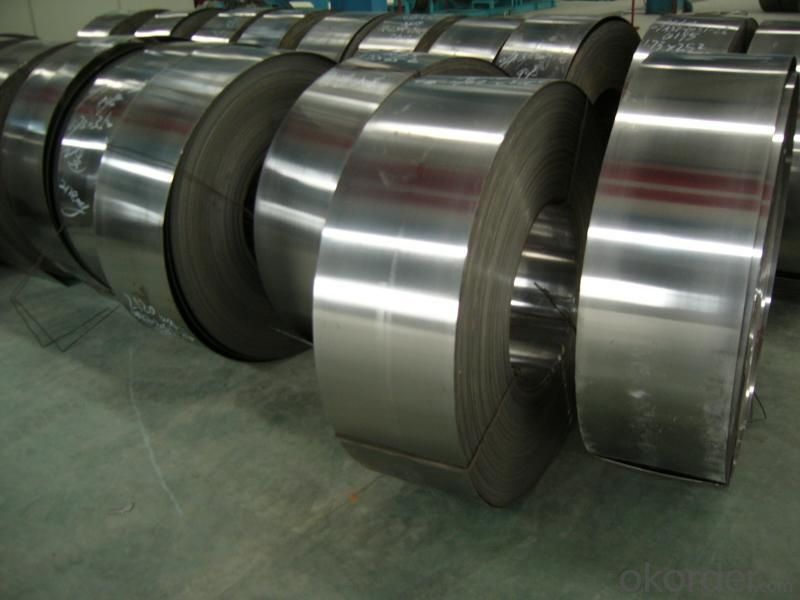
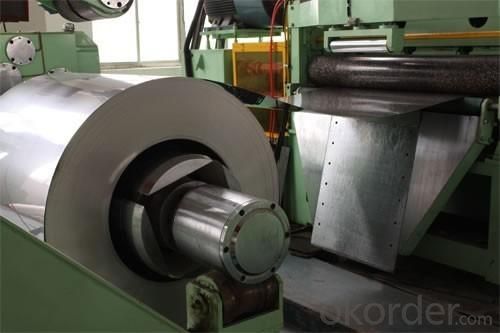
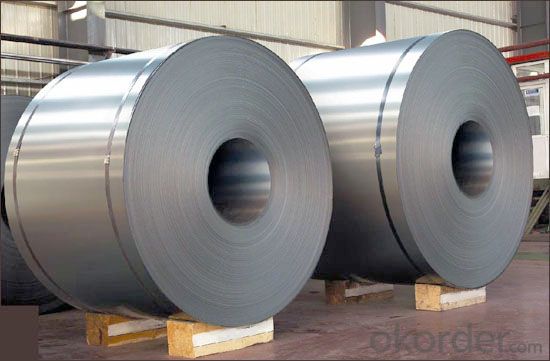
4.Cold Rolled Steel Specification
Standard:AISI,ASTM,DIN,GB,JIS,JIS G3302 ASTM 653M EN10142
Grade: Q195~Q345
Thickness: 0.16mm~2.0mm
Width: 1250mm MAX
Coil weight:3-12 MT
Coil ID:508/610mm
Chemical composition:
C | Si | Mn | Cr | Ni | P | S |
0.150 | 0.476 | 11.231 | 12.50 | 0.900 | 0.039 | 0.010
|
5.FAQ of Cold Rolled Steel
1.How to guarantee the quality of the products?
We have established the international advanced quality management system,every link from raw material to final product we have strict quality test;We resolutely put an end to unqualified products flowing into the market. At the same time, we will provide necessary follow-up service assurance.
2. How long can we receive the product after purchase?
Usually within thirty working days after receiving buyer’s advance payment or LC. We will arrange the factory manufacturing as soon as possible. The cargo readiness usually takes 15-25 days, but the shipment will depend on the vessel situation.
- Q: How are steel coils used in the manufacturing of transportation equipment?
- Steel coils are used in the manufacturing of transportation equipment as they provide a strong and durable material for various components such as frames, bodies, and chassis. These coils are often processed and shaped into different forms, allowing for customization and versatility in the design and construction of vehicles, including cars, trucks, trains, and ships.
- Q: Ik iron was too heavy but could steel bolts have been used. I can see iron dissolving at surface when to be a danger it needs to reach the core of sun.. But so does steel go deeper in(w.e alloy turned from iron)..I wanna know which would be worse iron..or upgraded iron(steel) and if the steel would have worse effects than normal iron..Im sure if we used iron we used steel
- Reach the core of the sun? No material can even get past the corona of the sun, where did you hear Ulysses went to the core? The spacecraft Ulysses orbits the sun at about 5 au. that's 5 times the earths orbit.. Steel is used instead of Iron because steel is much stronger and therefore you can use smaller 'bolts' to accomplish the same thing, reducing the weight. As far as most structures are concerned steel is better than plain Iron in every category. So Iron is worse i guess.
- Q: Is 440 steel relatively strong or weak?
- Grade 440C is one of the highest strength stainless steels. It is also very wear resistant. Good for use as ball bearings and other high wear applications. 400C has the highest carbon content of the 440 steels. 440A and 440B are identical but have lower carbon contents and have lower strengths and higher corrosion.
- Q: This question is directed to anyone who has played or know someone who plays a lap or pedal steel guitar.I've been a guitarist for about 8 years now and have played a variety of styles from rock, fingerstyle/classical, singer/songwriter acoustic stuff, ect, and now I've really had an interest in learning how to play a lap steel or pedal steel guitar. I am completely new to the instrument(s), so I'm seeking all the information I can. I do know that a pedal steel is a lot more expensive, so I'm probably looking to start on a lap steel for now. Basically how should I get started? Should I find a cheap lap steel at a pawn shop or purchase something new? Are there any good method books out there? I'm a pretty experienced guitarist, so should I expect to get the hang of it quickly? Is there much of a market for a lap/pedal steel player? haha.Also, I am left handed. How much trouble would it be to re-string a steel guitar? Or would I be better off getting a left-handed model?
- Hi, okorder /
- Q: Hi All,I was wanting to know,on the quality bikes such as Trek,Giant etc is the aluminum frames as strong as the steel frame bikes? I have heard conflicting reports on this,so thought I would ask here for more input.Thanks!
- Someone stated even the $99 walmart bikes are aluminum now. WRONG! Most Walmart bikes have steel frames unless you drop about $200.00. Personally, I prefer aluminum over steel. It's lighter, most times - just as strong and won't rust if you get a ding or scrape in the paint. See links below on Trek M/B. Trek 820 - steel frame - $329.99. Trek 3500 - aluminum frame - $359.99.
- Q: PLS tell me all Foam Steel Characteristics and use?Thanks
- Foam steel [often steel foam] is used in applications that require light weight but high rigidity and strength. Watertight doors on modern ships are often made of foam steel. Pressure doors on aircraft are possible uses. As we keep striving for lighter weights in cars, foam steel might have some useful applications in bodies. There is a technical paper online that is in .pdf format that has a good discussion of the process and characteristics of foam steel.
- Q: During fatigue testing of any material (especially for steels), why is strain-control mode preferred over stress control mode?
- because metals, like steel, are ductile and will stretch before breaking. Straining the metal is stretching it, stressing the metal is applying a shearing force or bending until there is an actual metal failure. A sheet metal strap 1inch across and 24 gauge metal is commonly used to support metal ducting systems in construction. These have an average strain to failure weight load as high as 16,200 lbs. As reported by the smacna index, they will safely hold 6800 pounds. Of more interest is the screws used to hold the strap to the duct. While they are grade 3, fairly strong, they strain to 1400 pounds when properly installed, and are safely able to support 650 pounds, unless they are overtorqued (stripped) and this quickly drops to 400 pounds and 125 pounds...big difference.
- Q: What are the different types of steel coil slitting processes?
- There are several types of steel coil slitting processes, including rotary slitting, loop slitting, and pull-through slitting.
- Q: What are the common thicknesses available for steel coils?
- The common thicknesses available for steel coils vary depending on the specific application, but they typically range from 0.5mm to 25mm.
- Q: Is it possible that stainless steel watches get rust. Any experience? Thanks.
- Under certain conditions, even stainless steel will rust. They include: Exposure to some noble metals (copper/silver) in a corrosive atmosphere - and why stainless must be separated from silver or silver plate in a dishwasher. Stainless steel will pit if touching silver as many DW detergents are rich in chlorine. Under some conditions, and depending on your skin chemistry, if you wear a copper bracelet on the same arm as the watch, the surface of the watch will pit. If you commonly are exposed to some kinds of welding fluxes, if you are exposed to water with high salt concentration and you do not rinse off the watch after exposure, that can pit the surface. Stainless Steel is no more than corrosion-resistant, not corrosion-proof. Most of the time under most conditions, it is fine. But not all of the time under every condition. As it happens, what affects SS the most is any kind of electrolysis due to galvanic action involving halogen salts.
Send your message to us
Chinese Best Cold Rolled Steel JIS G 3302 in Low Price
- Loading Port:
- China main port
- Payment Terms:
- TT OR LC
- Min Order Qty:
- 50 m.t.
- Supply Capability:
- 10000 m.t./month
OKorder Service Pledge
OKorder Financial Service
Similar products
Hot products
Hot Searches
Related keywords
